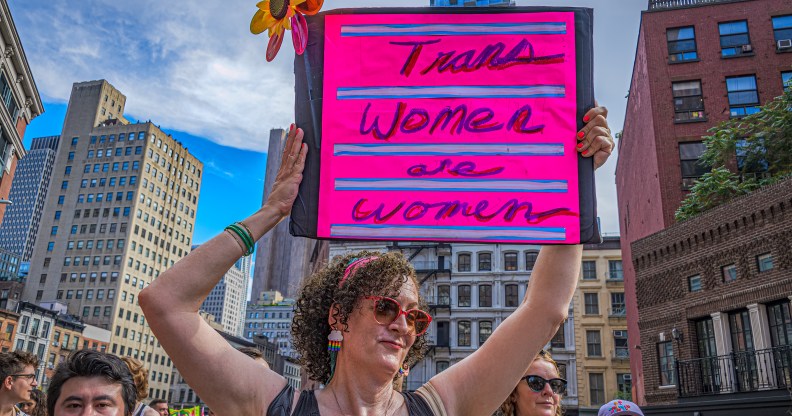The CDC finds discrimination puts trans women at higher risk of HIV

Trans women need improved access to healthcare. (Erik McGregor/LightRocket via Getty Images)
The Centers for Disease Control (CDC) has found that discrimination puts trans women at a higher risk of contracting HIV.
In a new report from the organisation, researchers have stated that trans women need improved access to healthcare and the preventative drug PrEP, but are being restricted by employment and housing discrimination.
The new data was published on 25 January in the Morbidity and Mortality Weekly Report, which details public health information and recommendations from the CDC. Researchers looked at data from a 2019-2020 survey of over 1,600 trans women — the demographic of which HIV and AIDS have been disproportionally high, especially for Black and Latina trans women.
The study authors found a link between anti-trans discrimination in housing and employment and an overall lack of access to healthcare.
Out of the respondents, seven in 10 said they had experienced a form of anti-trans discrimination in the past year, 42 per cent said they were fired or couldn’t find a job, while 14 per cent said they were denied housing.
This discrimination then prevents many trans women from the ability to access quality healthcare, including gender-affirming treatment or PrEP, and can expose them to potential incarceration and violence, which increases the risk of contracting HIV.
Lack of housing and healthcare can increase the difficulty of securing a job, and according to the study, such factors can push these marginalised women into survival sex work or other environments which carry a high risk of HIV transmission.
Researchers wrote in the report: “Employment discrimination occurs at the overlapping nexus of poverty, homelessness, incarceration, health insurance, disability, food insecurity, and survival sex work. These issues are interconnected.”
They continued: “When economically marginalized transgender women are refused employment, this refusal cyclically contributes to economic hardships.
“This analysis…demonstrates the importance of transgender women working and living with dignity and without fear of unfair treatment,” the authors of the study concluded.
The CDC study then recommended that Medicaid programs be expanded to cover gender-affirming care — especially in light of states where such treatment is not covered, as respondents were twice as likely to report difficulty finding work.
The authors also noted that such programs have been “shaped by structural racism, which has contributed to health inequities among Black and Hispanic persons”, which leads to avoidance and a lack of trust in the community.
The study also suggested decriminalising sex work as one way to prevent trans incarceration and associated negative health outcomes.
For a list of state-available HIV/AIDS hotlines in the US, click here.

